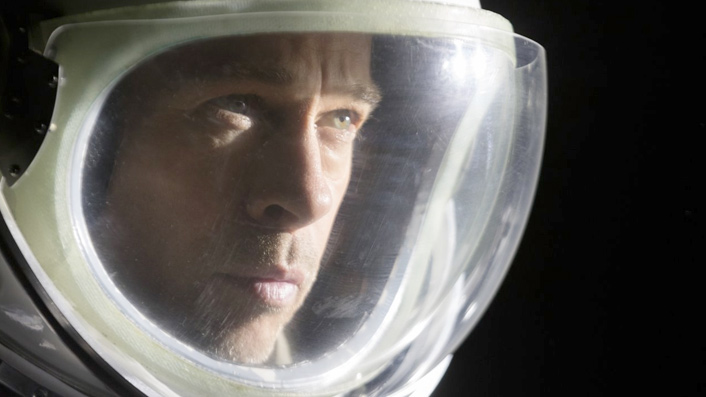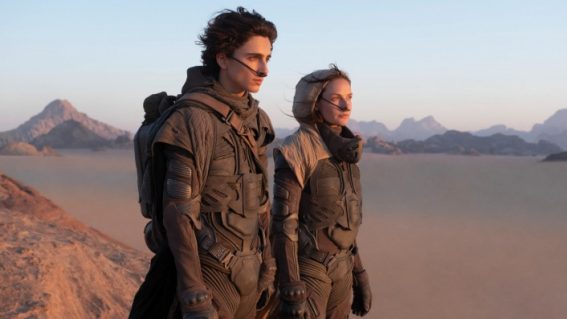Ad Astra is spectacular sci-fi with a stupendous Brad Pitt performance

An astronaut (Brad Pitt) journeys across the solar system in search of his father and to learn more about a looming threat to human survival in this sci-fi from the director of The Lost City of Z.
With a stupendous performance by Brad Pitt, and truly nerve-wracking action/sci-fi set pieces, Steve Newall was blown away by Ad Astra.
For a film that traverses the solar system, depicted to stunning effect, there’s a deceptive sense of simplicity when Ad Astra isn’t thrilling with truly nerve-wracking action/sci-fi set pieces in Earth’s orbit, on the Moon and beyond. Central to this is Brad Pitt’s stupendous performance, laying a foundation with measured minimalism that anchors the film in both its gravitas and how his domination of screentime relegates the rest of the cast to little more than cameos (though some extremely effective). As Major Roy McBride, astronaut who prides himself on his mission-oriented headspace and a pulse never passing 80bpm even in the most stressful of circumstances, Pitt echoes the calmness of Once Upon a Time in Hollywood’s Cliff Booth. In both films there turns out to be more than meets the eye, and both of the roles are likely to factor Pitt into awards speculation in the new year.
Echoing Apocalypse Now, McBride is tasked with a secret mission to contact someone gone rogue, in this case, McBride’s pioneering space adventuring father (Tommy Lee Jones). Yes, you’re in for ruminations on father-son relationships, and yes, there’s more than a tad of voiceover from Pitt as he reflects more on the topic and his memories the closer he gets to his dad. Thankfully director James Gray doesn’t overegg this, steering clear of sub-Coppola, or worse, sub-Malick, terrain in this regard.
Throughout his convincingly-depicted near future, Gray’s storytelling and worldbuilding fit elegantly hand in glove. Ad Astra’s narration, for instance, echoes the automated psychological tests McBride must continually perform to retain flight status permissions—one of these tests, in turn, signalling the collapse of McBride’s much-vaunted compartmentalisation in one of Pitt’s most compelling scenes. The tests seem more a tool to keep McBride a functioning worker bee more than they betray any genuine concern for his well-being, hinting that military-industrial-capitalism is still alive and kicking in one of the most believably lived-in, corporation-infused solar systems since, er, Verhoeven’s Total Recall.
Gray finds a way to hammer home repeated parental metaphors in a manner that doesn’t grate—a swim through an underground lake reminiscent of amniotic fluid one example, umbilical cord-cutting elsewhere. And his film deftly answers some the bigger questions it gently poses, with some pretty positive takeaways that would likely be less subtly conveyed in other filmmakers’ hands. Not only is Pitt tremendously watchable and utterly convincing as McBride, but likely the most traditionally masculine hero you’re going to see in a film that takes a strong point of view about the follies of traditionally masculine heroes.
But there’s no need to worry about all that if you’re just after a dramatic sci-fi. Even though it has plenty to say, more than anything else it’s a supremely successful man-on-a-mission space pic. It looks spectacular, ratchets up the tension in multiple action scenes, had me utterly captivated for something like its last 20 or 30 minutes and left with plenty to ponder.

















